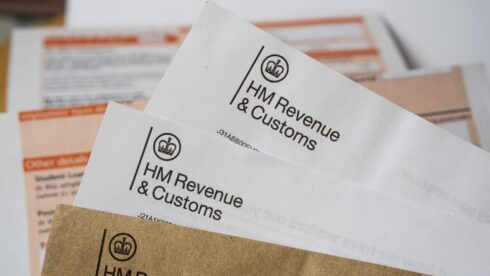Robin Stevenson on Making Tax Digital
Robin Stevenson
21/12/2018

I attended a function a few weeks ago and was asked what I do for a living. Usually I have a couple of answers ready depending on who is asking, and not wanting to make them wish they didn’t ask I gave my most nondescript answer… I am a tax accountant.
The “tax accountant” answer usually takes the conversation two ways, either the roll of the eyes and we start talking about what they do, or they ask me a question about their tax affairs. But this time it was different, this time they asked what a tax accountant does and whether I felt threatened by HMRC plan for digital taxation. Phew!
They realised that a tax accountant in practice, that is one with clients, will deal with their clients tax affairs and normally prepare any necessary tax returns – a private individual might only have one tax return a year but a business could have many more by the time we add in a corporation tax return, VAT returns, PAYE returns, and that’s not touching the more specialist returns.
All the above come under the heading “tax compliance” and it makes up a big part of the work I do for clients. Tax Compliance is essentially reporting on events that have already happened and calculating how much tax is due, basically we’re helping clients meet their responsibilities and making sure all relevant allowances and reliefs have been claimed.
However, tax compliance is only part of the work of a tax accountant. Clients also look for advice, comfort and reassurance of their tax liabilities in advance of events taking place helping them plan for the future. An example might be someone looking to sell an asset, perhaps a property, and need to be sure what the tax liability will be and how much of the proceeds will be left after the appropriate taxes have been paid.
Other work might be restructuring family finances, especially for those looking to pass on assets and wealth. Tax isn’t the be all and end all with this sort of work as family dynamics need to be considered to make sure the advice is tailored exactly to that particular family.
Our tax system is one of the most advanced in the world and is constantly changing
Company clients are often concerned on how best to withdraw money from the company, or perhaps claiming R&D tax credits or Capital Allowances, and even advice on how to pass the business on to the next generation.
The above are just a couple of examples of the work a tax accountant undertakes on behalf of their clients. There are many more examples and I may cover some in later editorials, perhaps with more explanation.
But it was the digital taxation part of the conversation that was the most interesting. The self assessment tax return will start to change as HMRC introduce more and more parts of the Making Tax Digital. At the moment a self assessment tax return is filed with HMRC once a year and that is used to calculate your tax liability for the year, but the new system will turn this on its head with the grand plan to be that HMRC will collect the information for the tax return throughout the year and then once a year you will log in and check that the information held by HMRC is correct. Payroll information is already being fed into the HMRC systems each month and the next step is introduced from April next year. Any VAT registered businesses with annual turnover exceeding £85,000 will have to file their VAT returns using the new system and whilst this might seem a small step for some businesses because they already file their VAT returns online, it does mean they will have to review their bookkeeping systems to make sure they comply with the new requirements.
Should we feel threatened by more and more of our tax affairs falling within the Making Tax Digital system? The simple answer is no. I’ve said previously that our tax system is one of the most advanced in the world and is constantly changing, making tax digital is just part of this ongoing evolution. The advantages of the new Making Tax Digital system are clear… so long as the system works well. And it’s that last part that concerns me. From April next year businesses are likely to suffer quite a bit of upheaval to their existing systems and quite possibly increased costs to meet HMRC’s requirements and I don’t think that’s fair.
If you are concerned about Making Tax Digital, then please do let me know. It might be that we can help you make the transition to the new system much more manageable!

Robin Stevenson - Tax Partner
Email: robins@swindellsaccounting.co.uk
Tel: 01825 763 366
Sign up to receive our private content
straight to your inbox






